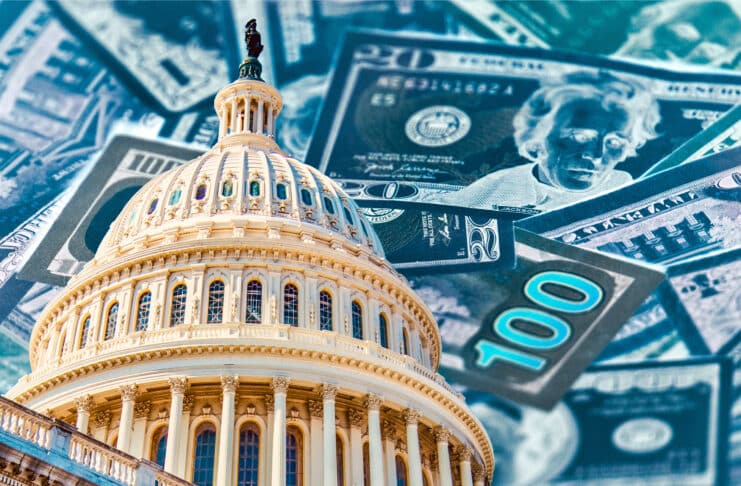Back in August, official Washington was patting itself on the back for the bipartisan unity it showed in approving a massive industrial policy bill aimed at subsidizing the domestic manufacture of semiconductors. The reason? An acute shortage of chips helped spur inflation, and foreign manufacturers were considered increasingly unreliable given the rise of aggressive autocrats plus COVID-snarled supply chains.
At a signing ceremony for the bill, President Joe Biden said:
“Today is a day for builders. Today, America is delivering,” Biden said just before signing the legislation in a White House ceremony. “I honest to God believe that 50, 75, 100 years from now, people will look back on this week, they'll know that we met this moment.”
Looking back on this multi-billion dollar bit of corporate welfare from just four months later shows it was an extremely expensive solution in search of a problem:
The world is now awash in chips.
The oversupply marks a sharp turnaround from a global shortage during two years of supercharged demand. Consumer appetite for electronics has weakened against a backdrop of rising interest rates, a falling stock market and recession fears. Chip inventories are swelling, mirroring what is happening in the wider economy where retailers are stuck with goods on their shelves and producers of a range of products in high demand early in the pandemic now face a glut.
What is happening in chips amounts to good news for consumers who can get their hands on products from washing machines to laptops faster, and sometimes more cheaply, than a year ago. For chip makers, the shift has triggered a wave of job cuts and reduction in capital spending as companies try to restore profitability levels that have eroded in recent months.
For students of either economics or history (preferably both), such an outcome was entirely predictable. But for those in the political class who seem to be students only of what's good for them, here's Cato's Scott Lincicome:
…industrial policy — properly defined — has an extensive and underwhelming history in the United States, featuring high costs (both seen and unseen), failed objectives, and political manipulation. Not every U.S. industrial policy effort has ended in disaster, but facts here and abroad demand that we rigorously question any new government efforts to boost “critical” industries and workers and thereby fix alleged market failures. Unfortunately, such skepticism is rarely applied.
The United States undoubtedly faces real economic and geopolitical challenges, but the solution lies not in copying China's topdown economic planning on the grounds that the U.S. system is failing and that China is an inevitable economic power. Instead, American policymakers should lean into the things that made the United States a global leader to begin with: openness to foreign trade, workers, and investment; tax policies that avoid excessive burdens; flexible labor markets; stable monetary policy; and most notably, a lack of any grand industrial policy.
In other words, we should leave taxpayers out of it and let the market work. There's no political reward for doing so. But then again…there shouldn't be.
The opinions expressed in this article are those of the author and do not necessarily reflect the positions of American Liberty News.
READ NEXT: FBI's Response to Fox News Should Disturb EVERYONE >>



Don’t you mean leave the government out of it and the market work
Pedo Joe should be charged with treason for his attack on the US economy! He is a domestic terrorist and an enemy to this country
A recent example of a public/private venture was Solyndra in Silicon Valley. Large sums of taxpayer money were sunk into a solar business that quickly became uneconomical – and management knew it, but still accepted government funding anyway. Any normal business would have closed their doors (or innovated), but it morphed into ‘soak the taxpayer’ for as much as they could get, THEN declare bankruptcy.
A better approach to attracting semiconductor business back to the US is remove the regulations that forced them overseas in the first place, give tax incentives, and let the market work. Remove corporate taxes for special manufacturing districts and let payroll taxes cover the costs of local infrastructure. Some of the environmental regulations were just ridiculous, and used as an excuse to shut down the industry to force them overseas.
The CHIPS Act will create a stable, long term manufacturing environment only so long as government subsidies are plowed into it, after which it will become apparent to all it is uncompetitive.